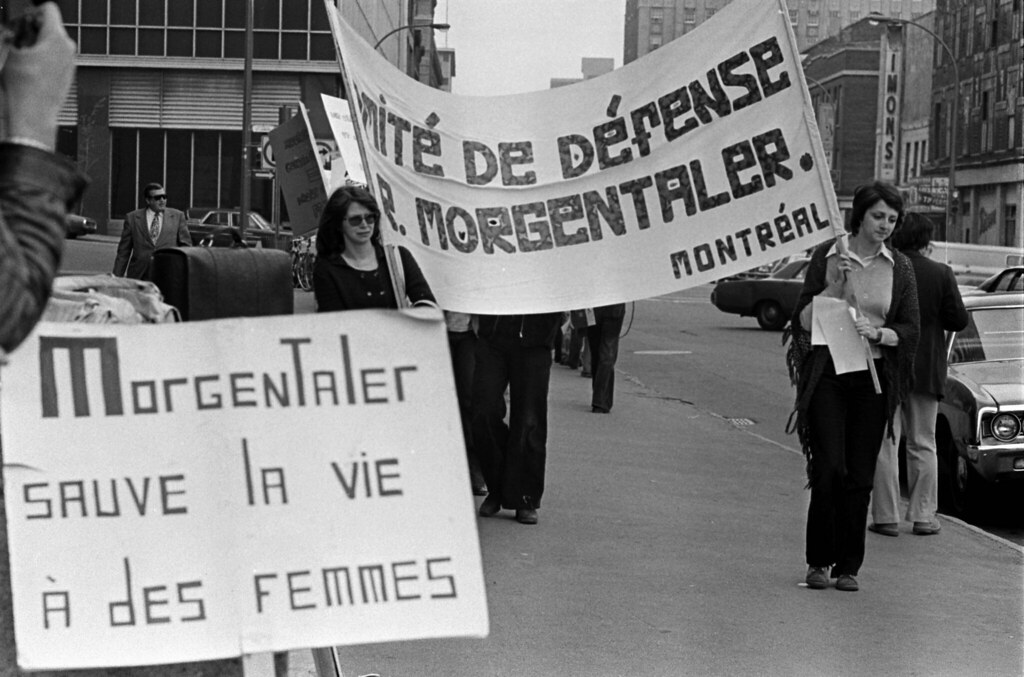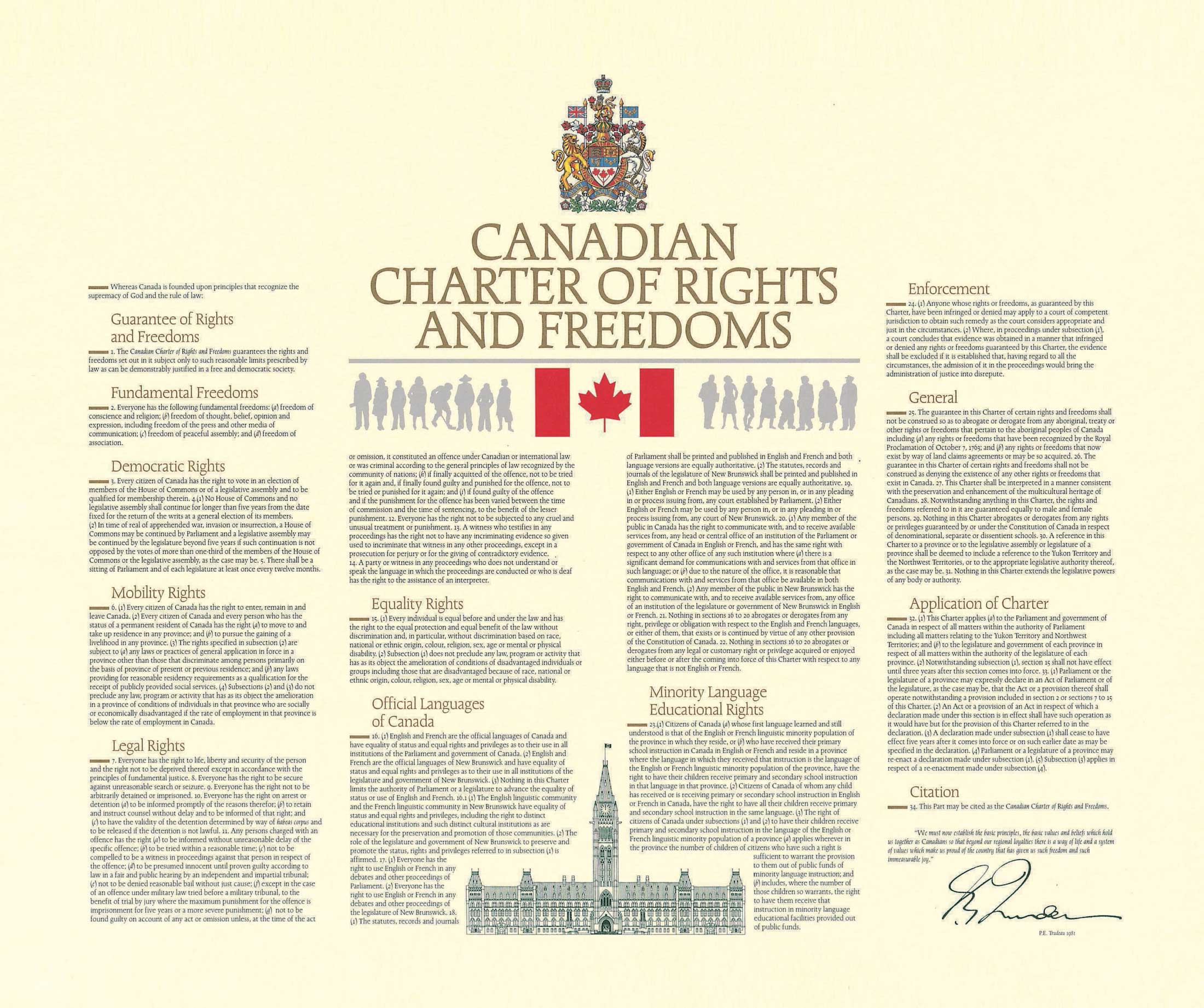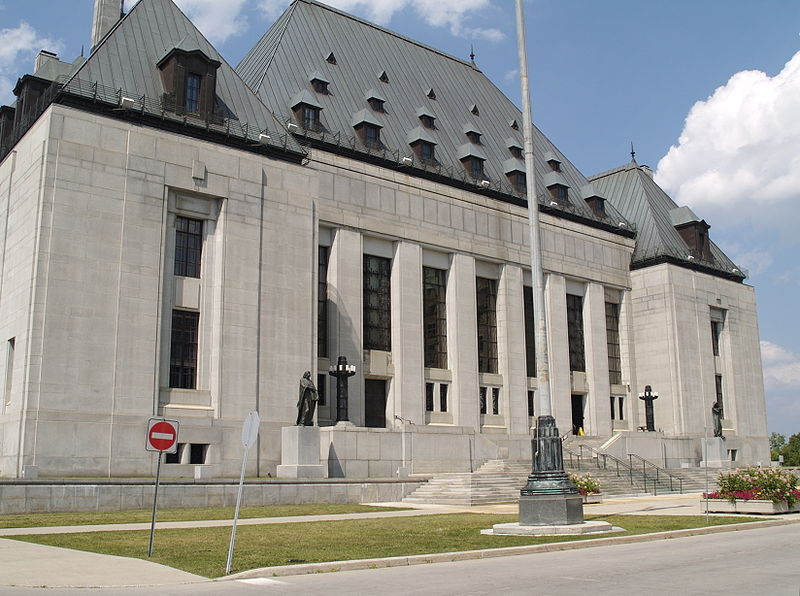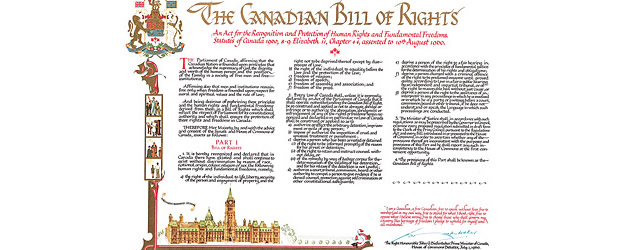The Supreme Court of Canada was especially assertive in expanding the scope of due process. For instance, although the right to silence during police investigations had been purposefully excluded from the Charter, the Court interpreted the Charter as guaranteeing that right as part of the right to counsel. More than half of its Charter decisions between 1983 and 2003 involved the conduct of police officers. The Court mainly addressed the right to counsel, burden of proof, trial within a reasonable time, the right to a hearing, and the admissibility of evidence. These judgments have led to a host of new due process rights: police are required to inform detainees of their right to a lawyer, their right to contact a lawyer of their choosing, and the availability of legal aid. Also, defendants have the right to a speedy trial (which has led to the dismissal of tens of thousands of criminal charges due to delays); a right to silence during pretrial investigations; and a right against self-incrimination, including as this relates to blood samples, DNA, and interrogations when intoxicated (in one case, the Court dismissed the evidence given by an undercover officer who had been placed in a prison cell to solicit a confession). Prisoners have a right to a lawyer during disciplinary hearings, and refugee claimants have the right to an oral hearing. The Court struck down the reverse-onus-of-proof provisions in the Narcotics Control Act (which required people caught with drugs to prove they were not traffickers) and nullified minimum jail sentences for importing narcotics on the grounds that the practice was cruel and unusual. The Court also frustrated Parliament’s initial attempt to ban a woman’s sexual history (and medical records) in sexual assault cases because it violated the accused’s right to a fair trial. It then forced Parliament to revise the legislation that prohibited sex with minors under fourteen years old, but affirmed the right against publicizing the names of rape victims. Over the years, the court has not hesitated to dismiss confessions and overturn convictions if there was evidence of coercion or police misconduct. At the same time, there has been a noticeable decline in the number of laws nullified under the Charter since 1990; the Court is seeking a balance between public policy and new rights under the Charter. Judges, for instance, can admit evidence if errors were made in good faith or if excluding evidence might bring the administration of justice into disrepute.

The Charter has also transformed the right to privacy. The law criminalizing abortion had survived multiple challenges in the 1970s; but in 1988, the Supreme Court of Canada declared the law inoperative on the basis that it violated the right to privacy and that the procedural delays violated the right to security of the person (the Court also rejected subsequent attempts to restrict women’s access to an abortion). The Court had ruled four years earlier that the right to privacy required that searches or eavesdropping be authorized under statute or common law. In one case, a police officer entered a man’s trailer while he was asleep on the couch and found a bloody shirt, shoes, a cigarette package, and money linking him to a murder. The Court ordered a retrial and excluded some of the evidence. The Court has further restricted the search powers of regulatory bodies and excluded DNA or blood samples that were obtained under coercion (or, in a few cases, while the accused was unconscious) because individuals have a high expectation of privacy. In one case, the police used a traffic violation to affect a body-cavity search on a suspected heroine dealer. The court ordered a new trial and excluded the evidence.
These rights—equality and language rights, and the right to both privacy and due process—are a product of the rights revolution. With the obvious exception of basic due process (such as habeas corpus), they were not historically part of Canada’s rights culture. Under the Charter, the Supreme Court of Canada has dramatically expanded the scope of free speech in the context of the following: secondary picketing; advertising to children under thirteen years old; the publishing of polling data within three days before an election; advertising by dentists; spending during a referendum; importing literature deemed obscene; English-language signs in Quebec; and the promotion of hate speech. To protect freedom of religion, the court ruled that federal Sunday closing laws were invalid and struck down the requirement that home schooling instructors have a certificate issued from a school board. It has also redefined the duty to accommodate, for example, by creating a teenager’s right to wear a kirpan (ceremonial dagger) to school, and by requiring employers to accommodate people with disabilities (the standard being whether or not accommodation causes undue hardship). The right to a free press has led to the nullification of laws restricting media coverage of matrimonial disputes and pretrial civil hearings. The Court has also determined that there is a right to have sign-language interpreters in hospitals. Non-citizens also have rights. Through a creative interpretation of the equality section, and by applying the doctrine of analogous grounds, the Court has extended equality rights to new groups of people, including gays and lesbians, non-citizens, and unmarried couples.
Curiously, the Supreme Court of Canada was initially hostile to any suggestion that the Charter’s guarantee of freedom of association included the right to strike or to collective bargaining. The Court ruled against organized labour in a series of challenges to wage controls, prohibitions on strikes, union recognition, decertification, and back-to-work legislation. Although Chief Justice Brian Dickson acknowledged that the “role of association has always been vital as a means of protecting the essential needs and interests of working people,” the Court did not accept that freedom of association meant the right to strike. This did not prevent the Court from extending freedom of association to advertising or to the right of two companies to merge. In fact, only a year earlier, an Ontario judge had ruled that a union could not use its members’ dues to support a political party even though such a restriction would not apply to a professional organization or a corporation (the Supreme Court of Canada overruled the decision in 1991). However, in 2007, the Court ruled that freedom of association included a procedural right to collective bargaining. Then, in 2015, the court completely refuted its earlier position and declared that the right to freedom of association did in fact include the right to strike.



